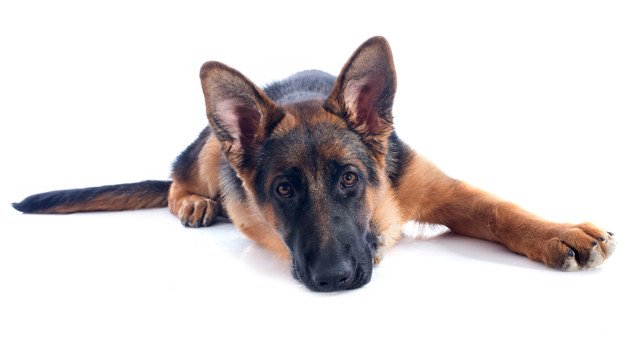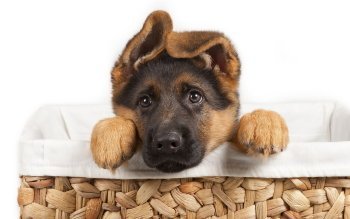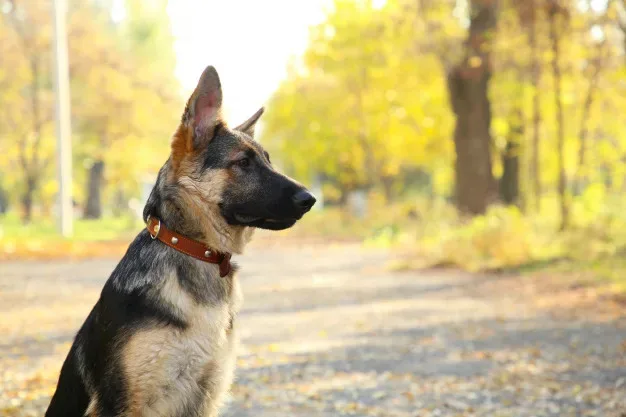Corona Vaccine for Dogs: The dog’s respiratory coronavirus (CRCoV) is part of the kennel cough complex and can spread in kennel-like conditions where dogs have high contact with each other or infected surfaces.
Table of Contents
It is genetically related to bovine and human coronaviruses that cause respiratory infections and colds in people. Dogs who catch it have mild symptoms such as cough, sneezing, and nasal discharge.
The new human coronavirus outbreak is all over the news, and this topic has caused a lot of questions for veterinarians. The World Health Organization (WHO) designates it as 2019-N Cove.
The illness is believed to have originated in Wuhan City, Hubei Province, China. The “Wet Market” is thought to be a market source that includes seafood and livestock, including chicken and pigs.
The origin of this coronavirus is not yet known till date and remains to be investigated. Initially, bats were thought to have spread to another species, then humans. Pangolins (a type of squamous anteater) is suspected to have played a role as their coronavirus looks similar, but no one knows for sure. There are no specific animal reservoirs at this time.

Coronaviruses are positive-sense RNA viruses. They have four subgroups: Alpha, Beta, Gamma, and Delta. Alpha and beta infect mammals, while gamma and delta infect birds and fish.
Mers- were thought to have originated in camels, and had begun in sars bats and spread to cats. Both are in addition to the beta, 2019-nCov.
The other four are divided between Alphas, 229E and NL63, and Betas, OC43 and HKU1. These four have very mild symptoms that can cause colds and are not fatal. Fever, cough and shortness of breath are symptoms of 2019-nCov.

Transmission for 2019-nCov may result from close contact; Less than 6 feet; Coughing/sneezing aerosolizing respiratory droplets, and possibly foamytes (doorknobs, keyboards, pens, etc.) but less likely.
As mentioned earlier, no animal reservoir is known at this time for 2019-nCov. There are both dog and cat coronaviruses. Both of these do not spread to humans and are species-specific.
There are two types of dog corona viruses, one enteric (gastrointestinal) and one respiratory. There is a vaccine for the enteric version, but it does not protect against respiratory problems.
Protecting from 2019-nCov is not beneficial in dogs in areas where exposure is occurring. Enteric coronavirus in dogs creates illnesses in puppies and can be fatal in neonates (new-borns). Most of the time, it is self-limiting and clears up without treatment. Adult dogs usually have no clinical signs and they are only carriers.
Respiratory version is one of a group of viruses that cause canine infectious respiratory disease, a.k.a kennel cough.
In cats, the coronavirus is an enteric form and is very prevalent; 80-90% of people take it to a multi-cat home. The virus spreads in the feces and is, therefore, the rectal-oral transmission from the use of litter boxes.
Most cats do not develop diarrhea, and in doing so, they usually get it themselves.
In some cats, the coronavirus undergoes a mutation and becomes a feline infectious peritonitis virus (FIP). This will trigger his life-threatening immune-mediated disease at this time. Because it is an immune-mediated disease specific to the host’s immune system, it is considered medically infectious.
Also Read: Canine Parvovirus for German shepherd dogs symptoms and treatment.
If the animal reservoir is not known and you or a family member is diagnosed with 2019-nCov, then the sick person should be able to maintain or avoid your pet.
This is tough because they bring such comfort in times of need when we are sick, but it can save them if it passes.
Some coronaviruses cause illness in animals and can spread between animals and individuals such as sars and Mers. (2) If the infected person is around them, they should wear a mask to limit/prevent aerosolizing respiratory secretions.
There is no evidence at this time that it is being sent to your pets, but we are still early in studying this new corona virus and should be safe.
If your pet has been diagnosed with a 2019-nCov and is sick, you should take it to a veterinary hospital, but call first to discuss how to bring it. In this way, we can limit exposure to clients, staff and other patients.
What is a canine enteric coronavirus?
Canine enteric coronavirus causes diarrhea. In addition to orange diarrhea, dogs usually have sloth and decreased appetite. By itself, symptoms usually clear within a few days. In many cases, dogs have absolutely no symptoms.
Corona Vaccine for Dogs: How does it expand?
Enteric coronavirus is transmitted through infected feces, food/water bowls or direct contact with another infected dog. Remember, this is a completely different species than the respiratory strain of corona virus. CRCoV does not transform into the gut to become a CCV.
The best solution to limit exposure is to keep the environment healthy and not the dogs.
How to handle it?
In many cases, it can be cleared by stopping the food for about 24 hours and slowly reintroducing it. Also, the CCV is deactivated by heat when ambient temperatures are 85 degrees F or higher. Intravenous fluids may be needed to restore fluid levels and balance electrolytes. Consult your veterinarian for sure.
Vaccine Characteristics
The vaccine is available to prevent canine coronavirus infection. The vaccine may be included in combination vaccines that protect dogs from canine distemper virus (CDV), canine parvovirus (CPV-2) and canine adenovirus type 2 (CAV-2).
The American Animal Hospital Association classifies vaccines for dogs into three general categories – “core,” (all dogs should be vaccinated), “non-core” (based on the risk of infection) and “not recommended”.
The classification as “not recommended” means that the vaccine is bad or dangerous – not widely used in domestic dogs, which means it can not be recommended in general. However, your veterinarian is always a good guide to make the vaccine.
FAQs
What is Canine Coronavirus (CCV)?
Canine Coronavirus is a highly contagious virus that primarily affects dogs. It can cause gastrointestinal symptoms such as diarrhea, vomiting, and loss of appetite.
Is there a vaccine for Canine Coronavirus?
Yes, there is a vaccine available to help prevent Canine Coronavirus. It is typically given as part of a combination vaccine that also includes protection against other diseases like Canine Parvovirus and Canine Distemper.
How does the Canine Coronavirus vaccine work?
The vaccine contains a weakened or inactivated form of the Canine Coronavirus. When a dog is vaccinated, their immune system recognizes this antigen and produces antibodies against the virus. If the dog is later exposed to the actual virus, their immune system can respond more effectively to prevent infection.
When should my dog be vaccinated against Canine Coronavirus?
Puppies are usually vaccinated against Canine Coronavirus as part of their regular puppy vaccination series, which typically starts at around 6 to 8 weeks of age. Adult dogs may receive booster shots periodically to maintain immunity.
Is the Canine Coronavirus vaccine necessary for all dogs?
The necessity of the Canine Coronavirus vaccine depends on several factors, including the dog’s age, lifestyle, and location. Consult with your veterinarian to determine if your dog should receive this vaccine. It may be more important in certain regions or for dogs in high-risk environments.
How long does immunity from the Canine Coronavirus vaccine last?
The duration of immunity provided by the vaccine can vary from dog to dog. Some dogs may require annual booster shots, while others may have longer-lasting immunity. Your veterinarian can provide guidance on the appropriate vaccination schedule for your dog.
Can the Canine Coronavirus vaccine be combined with other vaccines?
Yes, the Canine Coronavirus vaccine is often combined with other vaccines in a single injection, reducing the number of shots your dog needs to receive.
Can humans catch Canine Coronavirus from dogs?
Canine Coronavirus is a species-specific virus, meaning it primarily affects dogs and not humans. However, there is a different coronavirus strain that affects humans (such as SARS-CoV-2), which is not related to Canine Coronavirus.
Remember that the specific recommendations for Canine Coronavirus vaccination may vary depending on your location and your dog’s individual circumstances. It’s essential to consult with your veterinarian to develop an appropriate vaccination plan for your dog.

